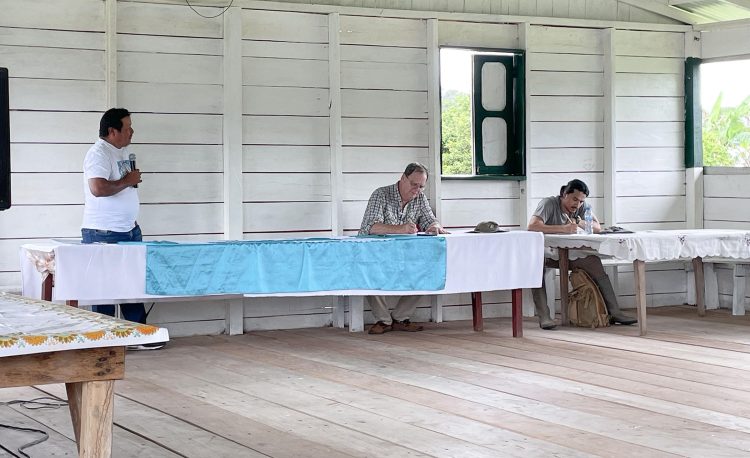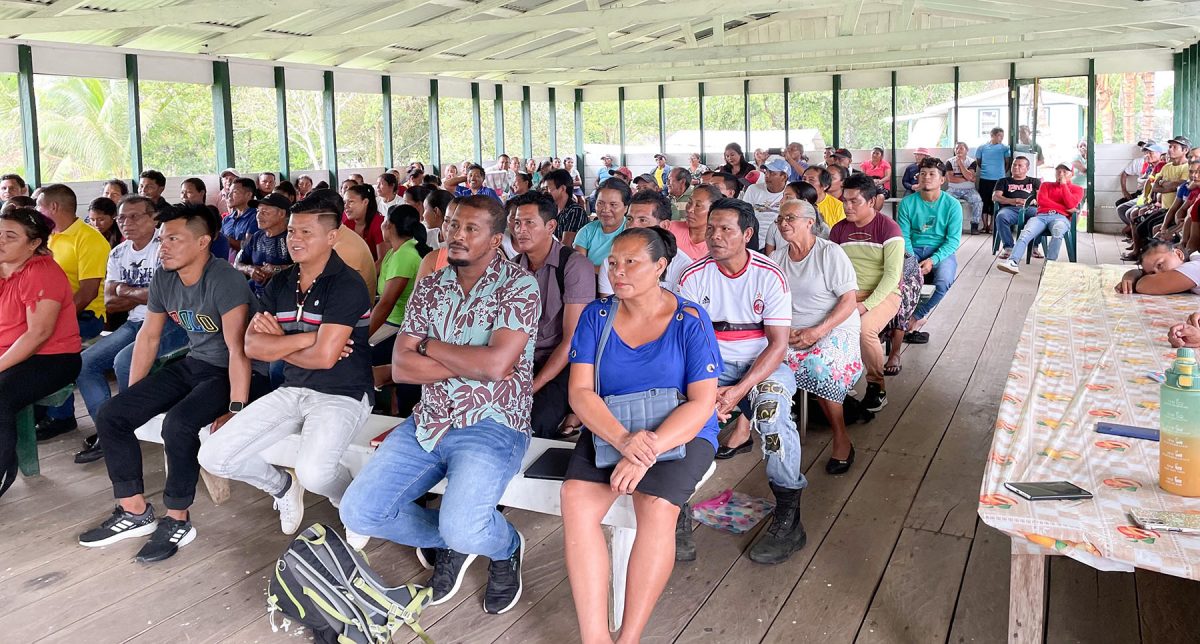Indigenous leaders of the Upper Mazaruni earlier this month expressed their dissatisfaction to an international carbon credits verifier that the government here had not respected their rights to Free, Prior, and Informed Consent (FPIC) on the matter.
The Upper Mazaruni District Council (UMDC) and Kako Village met with a team from the carbon credits scheme verifier, Aster Global, on Thursday, 9th May 2024. A release on May 17th from the UMDC said that the company has been contracted to audit Guyana’s conformance with the Architecture for REDD+ Transactions (ART) standard for measurement, The REDD+ Environmental Excellence Standard (TREES).
The representatives from Aster Global were Kevin Markham, Lead auditor, and Sandesh Shrestha, Forester and Remote Sensing Specialist. Along with the team as Observers, were members of the ART secretariat, Franklin Paniagua, and Julia Paltseva.
The release noted that the verification and validation conducted by Aster Global seeks to ensure that Guyana has correctly quantified net Greenhouse gases reductions and removals, and demonstrated conformance with the Environmental, Social, and Governance Safeguard requirements. The verification being conducted is for the year 2022.

“During the engagement, leaders expressed dissatisfaction with their right to Free, Prior, and Informed Consent not being respected by the Government of Guyana during the process of developing the proposal to ART.
“The leaders also expressed their hesitancy in conforming to the carbon credits scheme while the Government of Guyana has yet to address key issues such as the land titling program whereby ancestral lands were excluded from the villages’ land titles”, the UMDC release said.
Toshaos and several village councillors from the eight villages of the Upper Mazaruni District said that their ability to exercise self-determination and governance was limited by the pressure to submit their Village Sustainability Plans in order to access the carbon credit funds.
Overall, the release said that leaders shared their concern over the lack of information in their communities regarding the Voluntary Carbon Market and made a call for the relevant authorities to respect their land tenure rights and ensure the full and effective participation of indigenous peoples in decision-making processes. The Upper Mazaruni District Council said it was grateful for the engagement and looks forward to others in the future.









